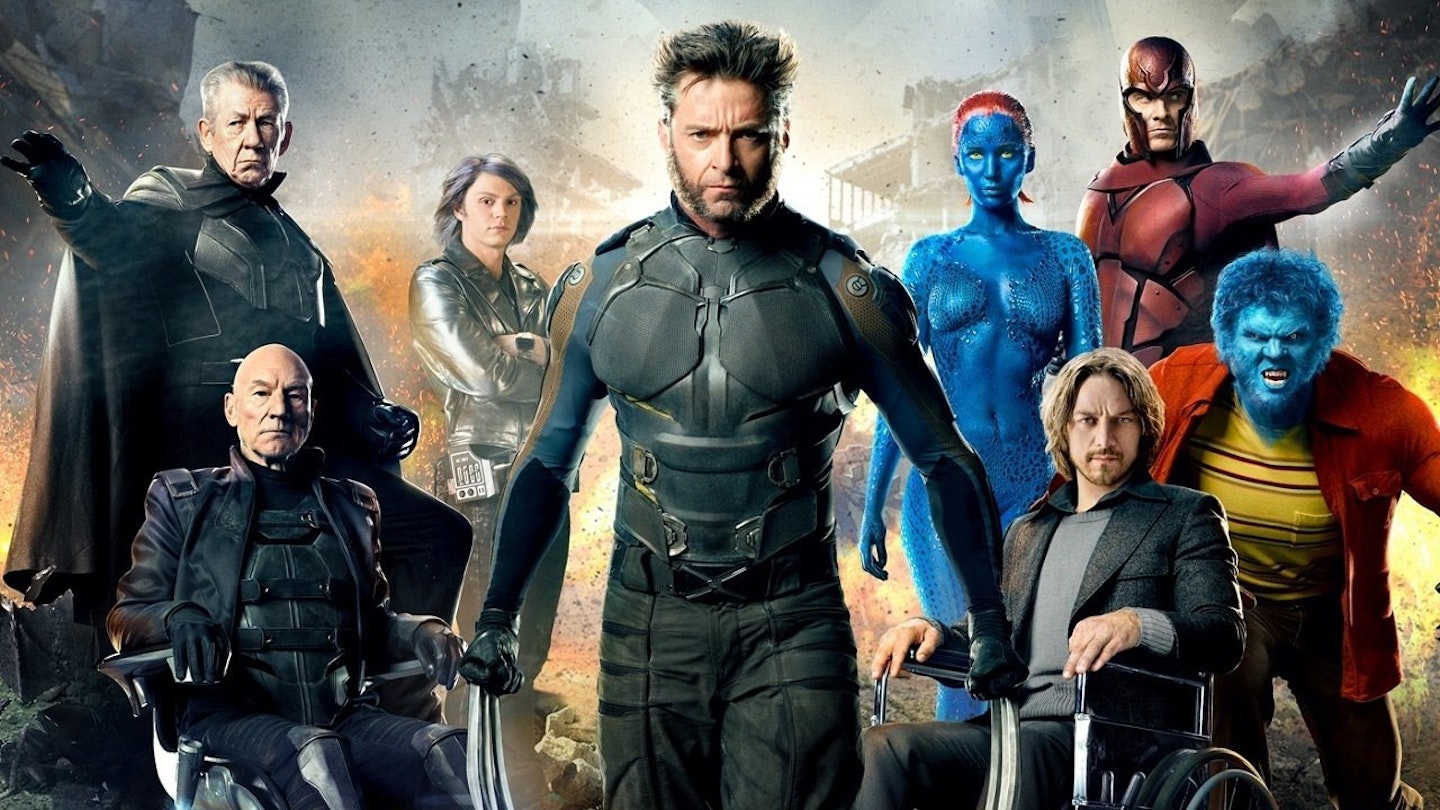X-Men: Days Of Future Past is one of those films that provokes fevered discussion as soon as you leave the cinema. While your friends are of course available for the purpose of dissection and deliberation, chances are they don’t include the producer and writer of the film, Simon Kinberg, who is in a position to give pretty definitive answers on many thorny questions of time travel and mutant powers. Stopping by the Empire Podcast booth for an in-depth chat about all things X-related, his spoiler special was so full of fascinating details we’ve turned some of them into the breakout feature you’re reading now. Needless to say, if you haven’t seen the film already, run away and don’t come back until you have because here be spoilers!
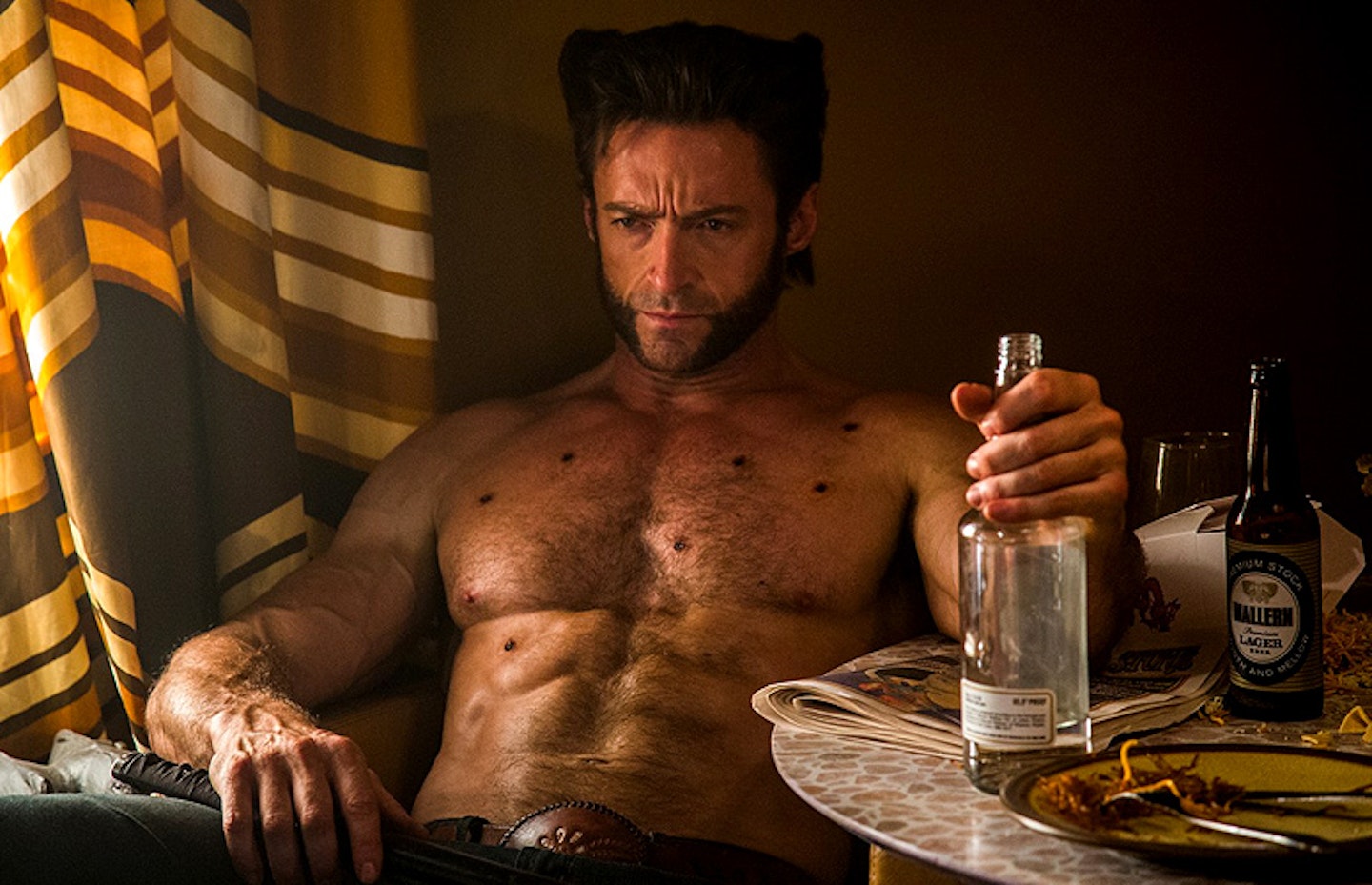
“The biggest place we diverged from the original books in who gets sent back in time. When we first talked about it, we wanted someone’s consciousness sent back in time instead of their bodies, and if you send Ellen Page’s consciousness back to the era of Michael Fassbender and Jen Lawrence, she’s negative-20 years old, so immediately we realised it wasn’t going to the pre-ghost of Ellen Page.
“Wolverine seems like the obvious person to choose, but it wasn’t for us – maybe because we’re not that smart – but Matthew Vaughn, who was the director at the time and with whom I developed the screenplay initially, and I explored the idea of sending Bishop back, Cable being sent back, a new character being sent back. Someone we could cast old and young.
“Somewhere in that process we realised we had a character that doesn’t age and happens to be the most popular character in the movie franchise, and as Hugh Jackman hasn’t actually aged, it then became Wolverine who was sent back in time. Nice and simple – like everything on this movie.”
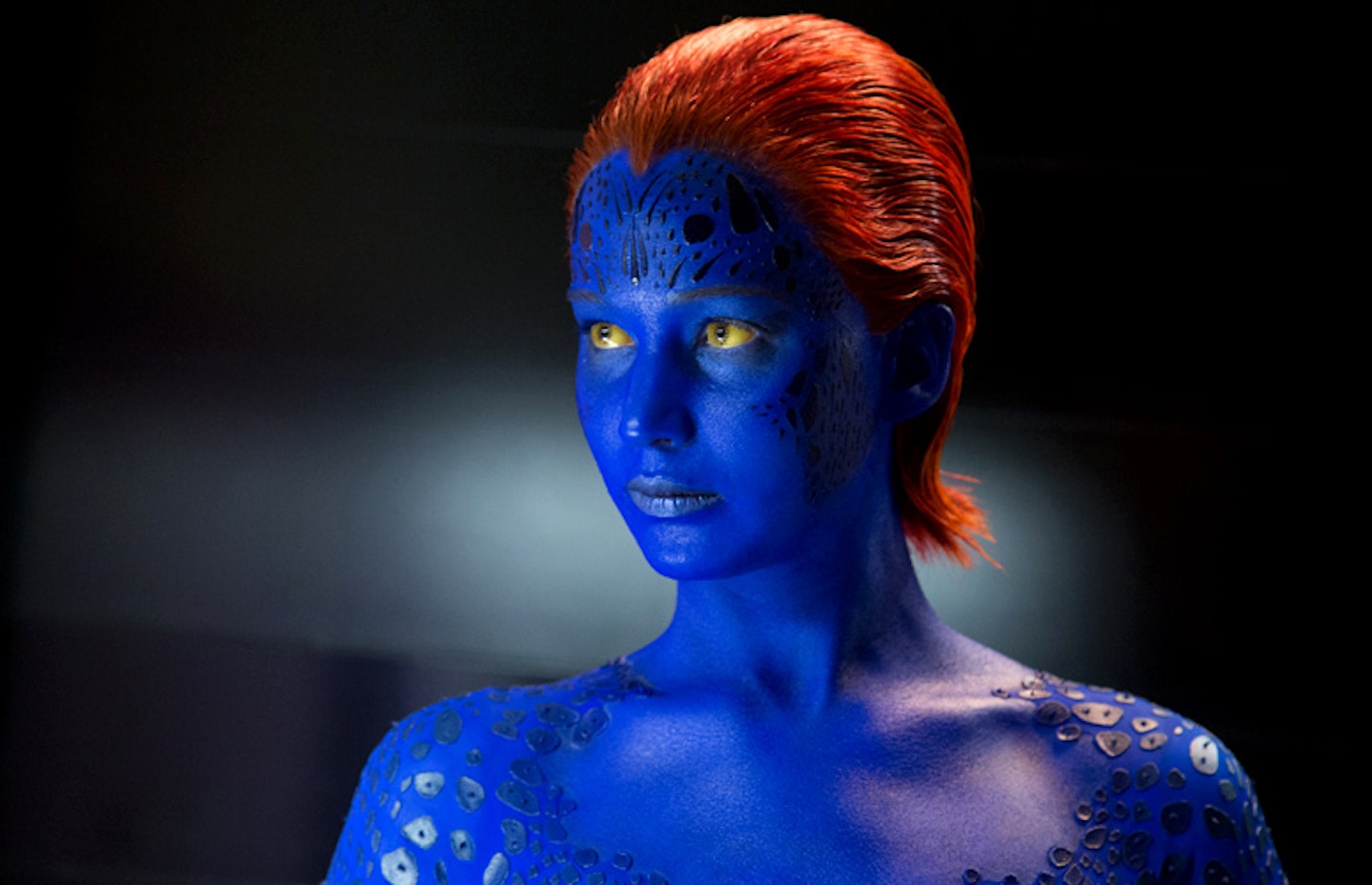
Mystique’s role really evolved over several drafts, and in working with Bryan Singer. She was always the McGuffin of the movie, it was always that they were going back in time to stop her from doing something, but that could go two ways. One could be them physically trying to stop her, which makes her just the physical McGuffin of the movie and leaves her without an emotional arc of her own. But at some point when we were working with Bryan, we realised that just physically stopping her wasn’t enough: she could just keep trying to do it again and again. They had to emotionally or philosophically stop her. You had to feel at the end of the movie that she was making the decision to stop, that she had changed in a way that she would not go on to kill again.”
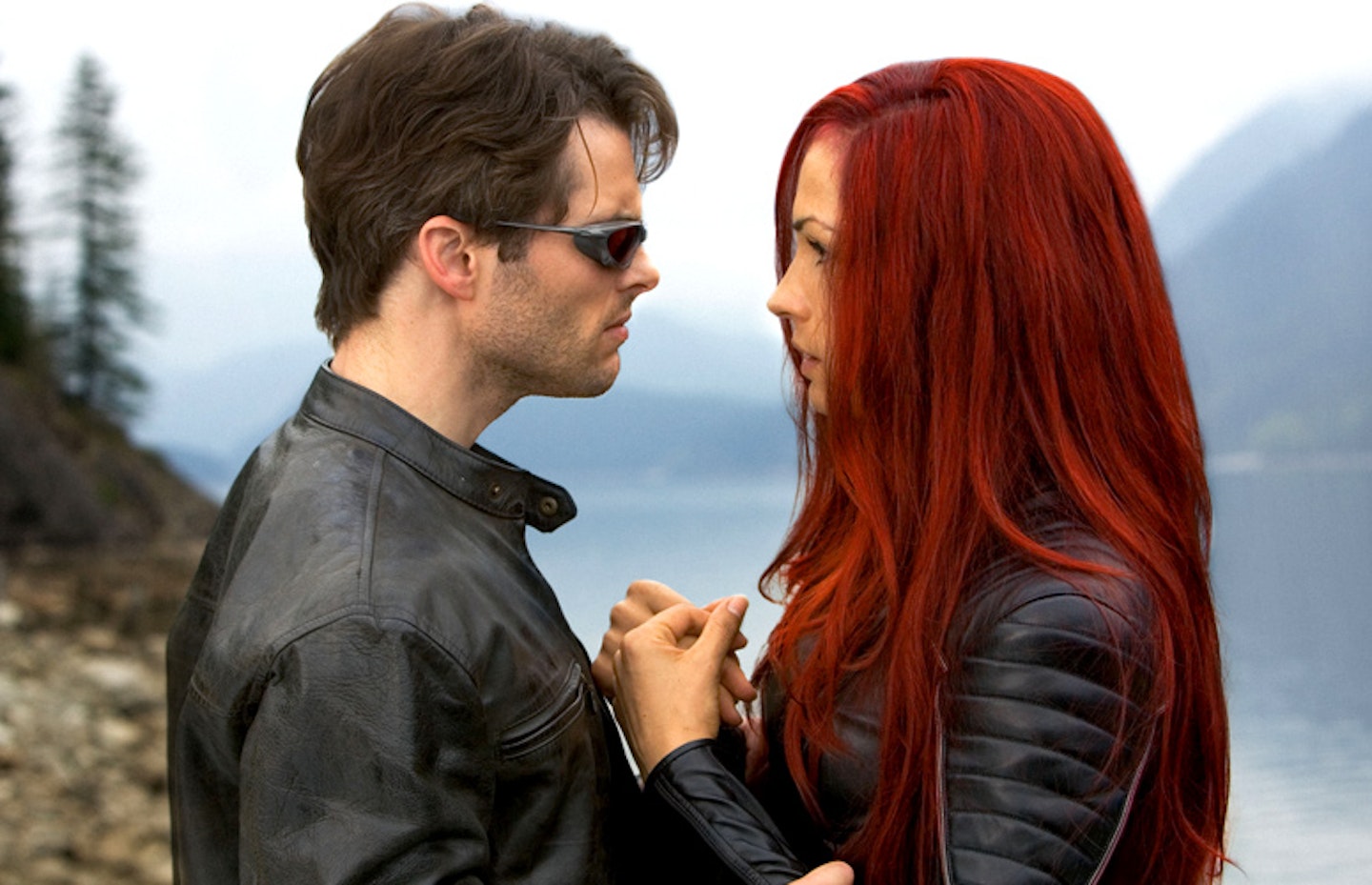
“There is no question that at the end of Days Of Future Past there are events that have happened in 1973 that did not happen in our accepted, real 1973. This ripples into the ‘80s, ‘90s and 2000s, where eventually X-Men 1 would take place. We acknowledge that at the end of the movie, with a look at the “future” that is similar to X-Men 1 through 3, but with some very distinct differences.
“We talk, maybe too much, in the movie about this notion of time travel, or time continuity, where the river of time keeps going in the same direction, but you can shift it a little bit. You can put a pebble in and see at least a splash. So at the end of this movie, we want to feel like the current is going in the same direction. Charles went off and started the X-Men, but the way he did it and the people who are part of the X-Men are not exactly the same.
“Bryan and I talked a lot about what we were going to honour, and what we were going to nullify from the original movies. Something I felt strongly about was making sure Jean Grey and Cyclops are alive at the end of the movie, perhaps out of personal guilt for having worked on X3. There are many things in X3 I am proud of, and there are many things I would do differently if I could go back in time and talk to my younger self. I was disappointed for personal reasons – and as a fan – with the way Scott was killed, and the personification of Dark Phoenix. I felt like seeing them at the end of the film would be very satisfying.”
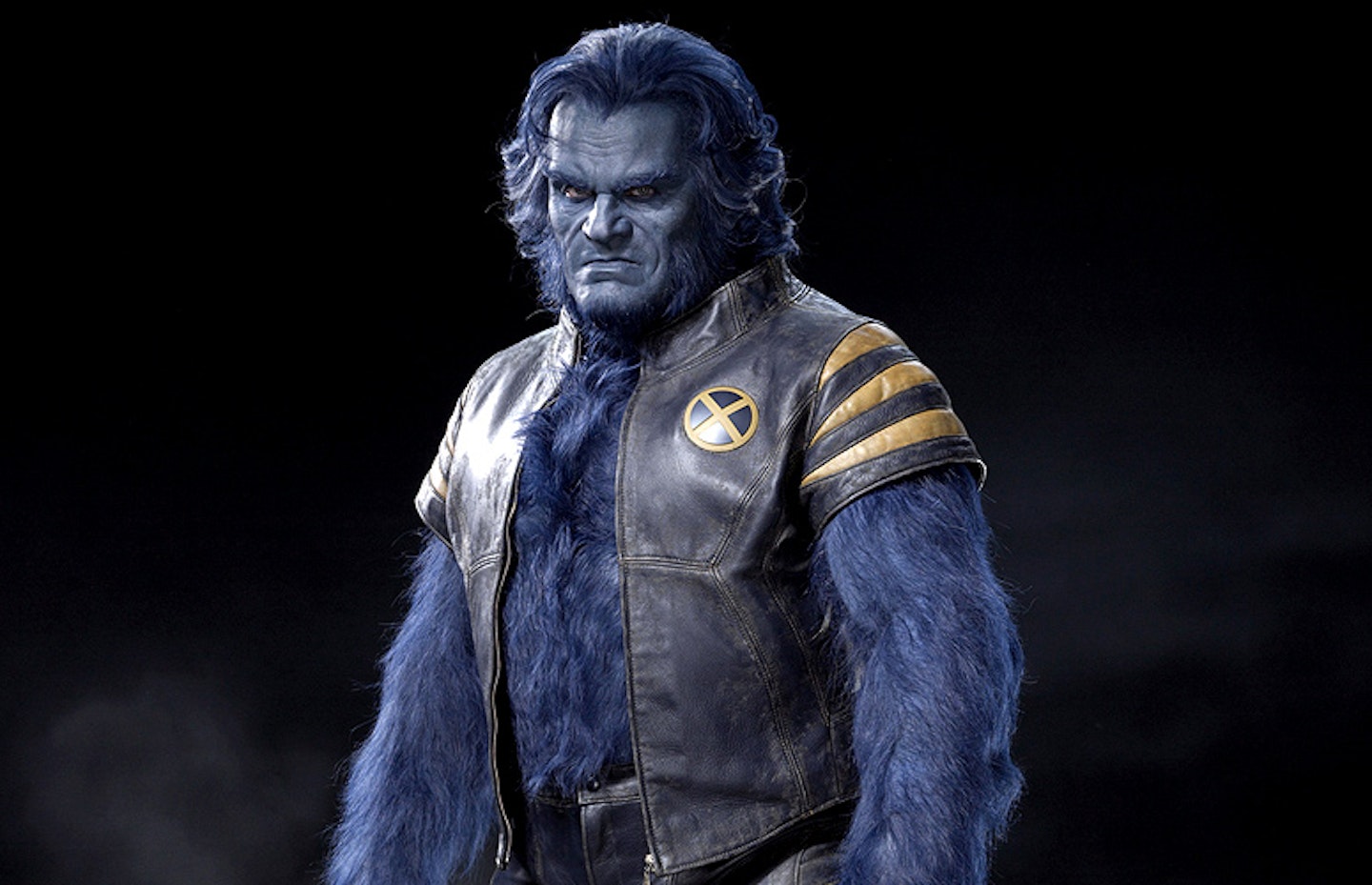
“That was Kelsey, yes. When we were making the film, we referred to the happy future section as the ‘Happy Mansion’ sequence. We brought in Beast late. He’s such a sweet, young character, Nick Hoult’s Beast, and we wanted to show he survived. There wasn’t any talk of any others because at a certain point we thought it might become a bit Mad, Mad, Mad World. Those seemed like the organic people. I knew from the off that it would feature Jean and Scott, and it’s something I was most adamant about from the off.”
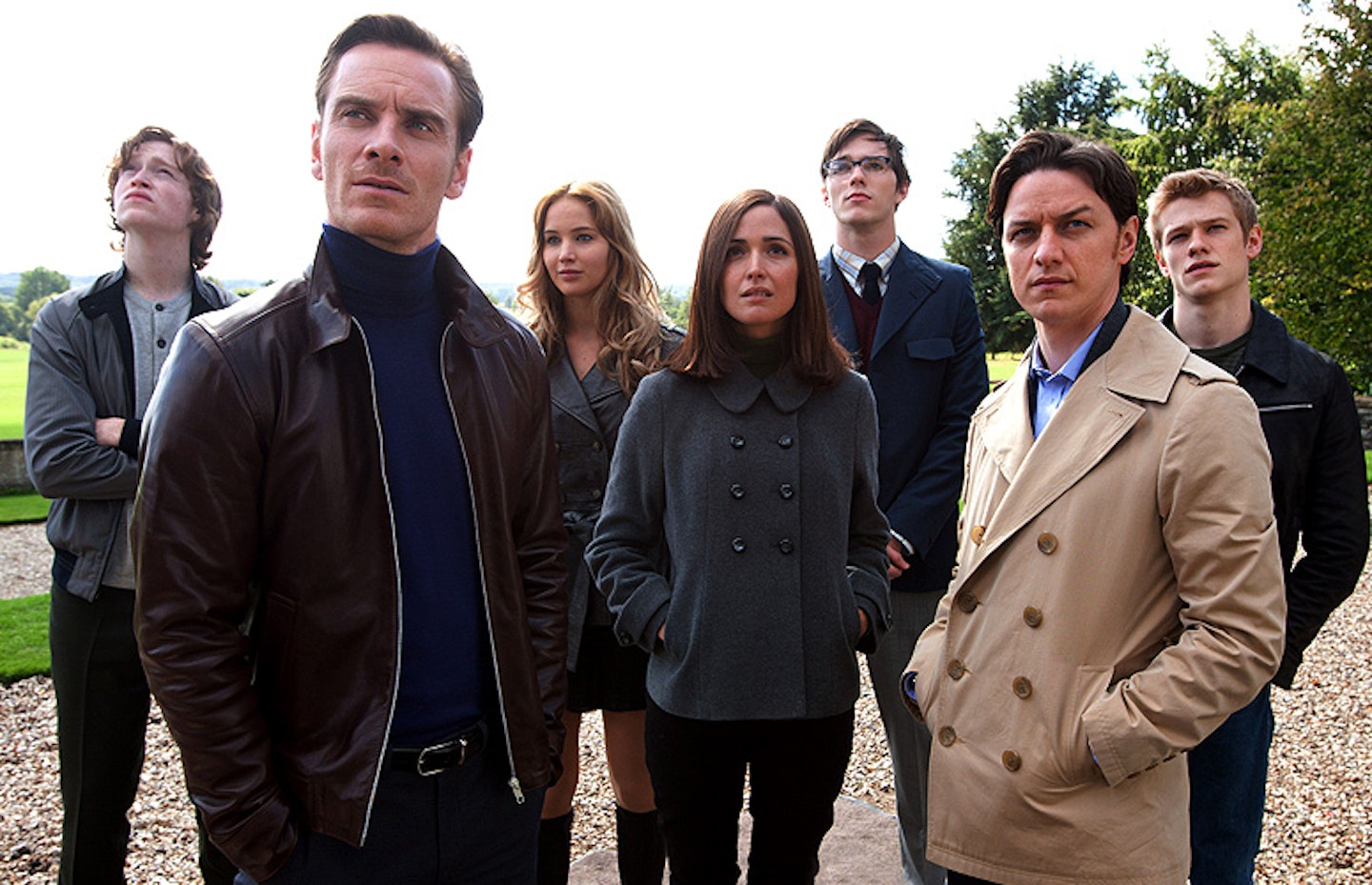
“We could go in either direction. Most likely, in truth – and I pray it’ll never happen – there won’t be another cross generational time travel extravaganza because I think my brain would implode.
“The plan right now with the new movie, Apocalypse, is that we’ll focus on the First Class cast. There’s still plenty of the original cast to grow forward, but there’s still so much growth to happen in between where the First Class characters are at the end of Days Of Future Past and where we know they end up: the twists and turns that potentially take them to becoming leaders or villains or everything in between. So definitely the focus is on the First Class cast going forward, with some visitation, shall we say, from the original characters.”
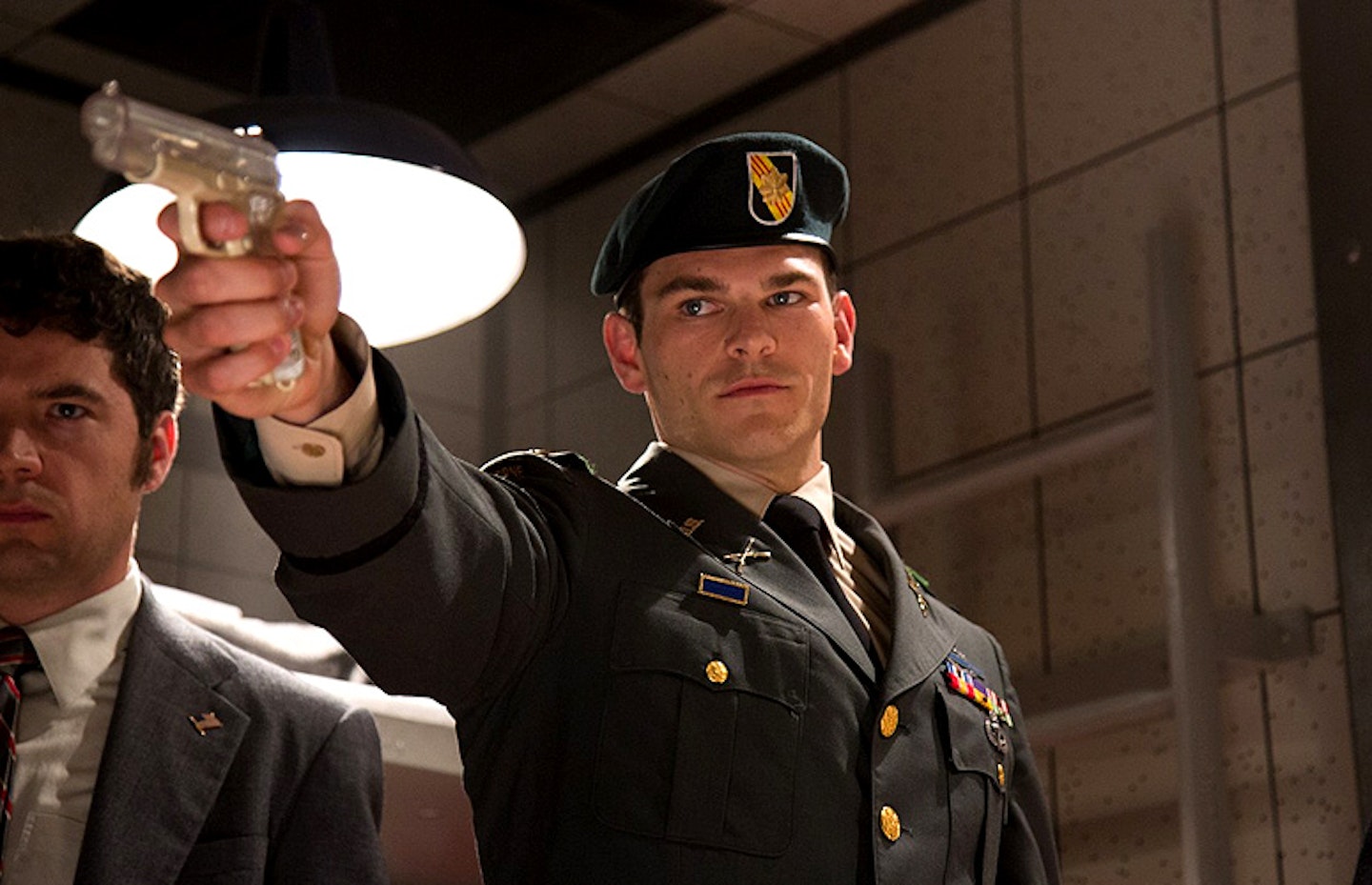
“I wanted Wolverine to end up with Stryker at the end of the film, but when we got down the line on that, it felt like such a downer ending, and there wasn’t any ripple in time. It was the same – the location where Stryker grabbed Logan was different, but Logan’s fate was very much the same. I felt like we hadn’t made enough of a ripple.
“So from there we thought about who else it could be. I was thinking of having other people on the boat – he could be fished out by Charles and Hank – but we set this thing up where Mystique is masquerading as a military character saving mutants from going into some sort of experimental programme in Saigon early on, so there’s a really nice symmetry there at the end.”
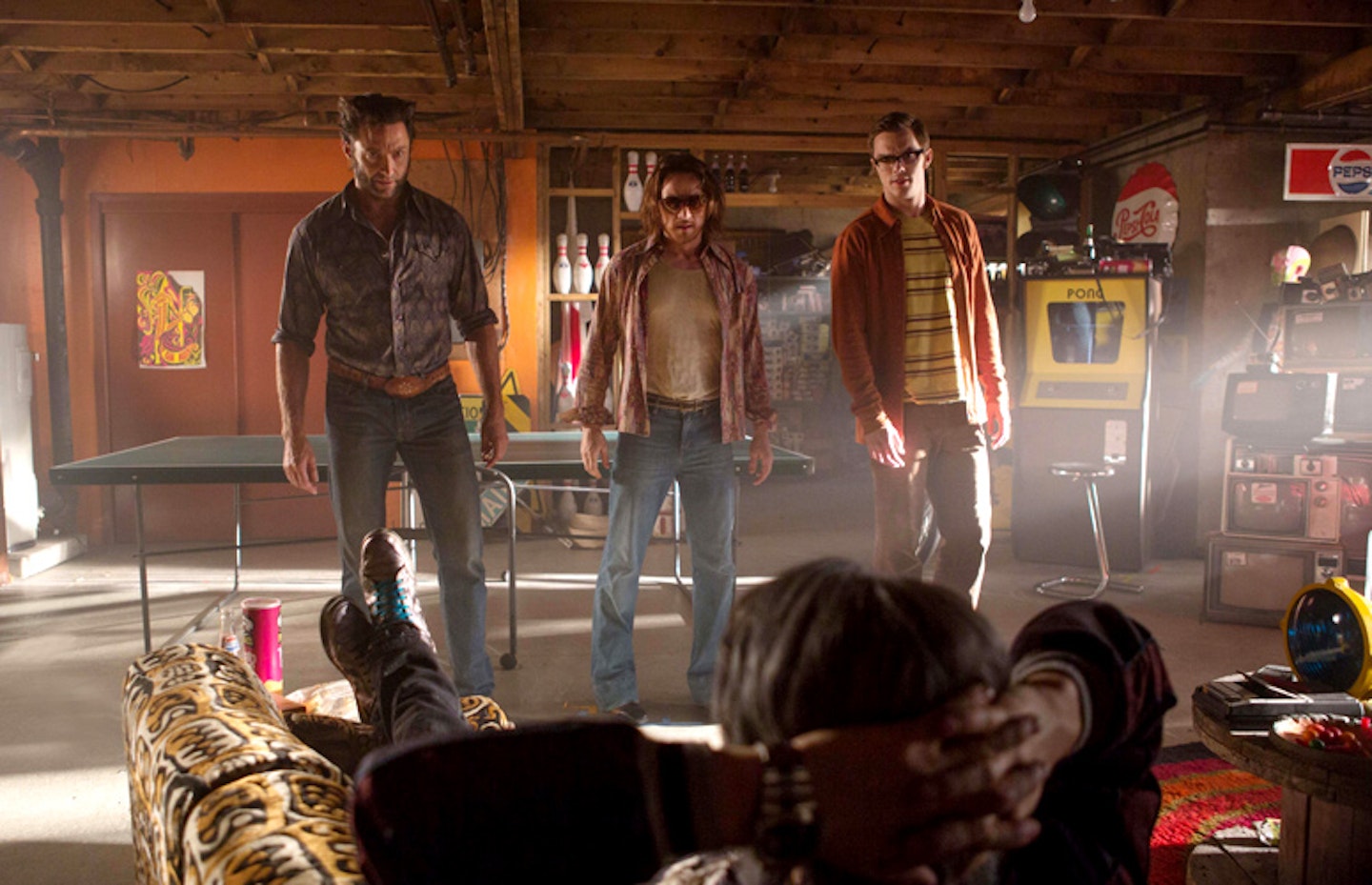
“Getting Charles walking again was the result of many, many conversations with Matthew Vaughn. We asked, ‘Who is Charles, ten years later?’ We really wanted to jump forward ten years; that was an instinct. Initially, he was going to be in the wheelchair, a Born On The Fourth Of July angry guy who has to lift himself out of bed every day, who never leaves the house. We decided against this for a couple of reasons, one being practical, because Matthew didn’t want to be beholden to the chair for every scene.
“But the bigger reason why he isn’t in the chair is because we started describing his arc as ‘Accepting the chair’. Initially that was a metaphor, but at a certain point, we thought about giving him that arc literally. We had to work out some machination to do that, which was Beast’s cure thing – something that’s contrived, but if you believe it, it works. In turn, this fed into this feeling that he wouldn’t want to have anything to do with this mutant cause, that he didn’t want to be a mutant anymore. ‘I just want my legs, and to be left alone.’ And so by the end of the film, after what happens, you know he’s going home to get a new chair.”
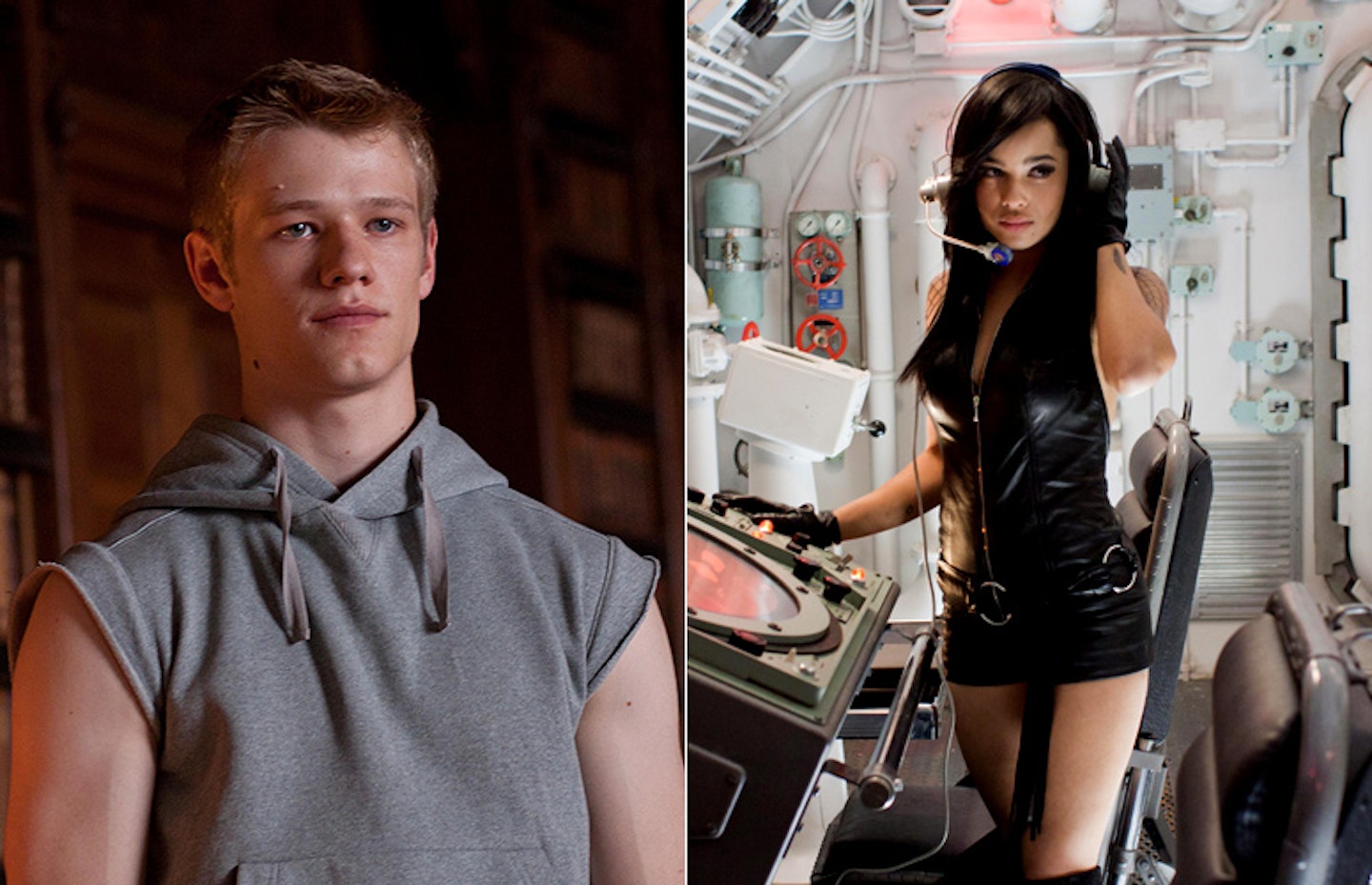
“We got pretty detailed with what happened to the survivors of First Class who ended up not making it. There was a draft of the script where you saw Havoc and Angel running through the woods in an experimental attack by a Trask Sentinel. This was the first time you see a glimpse of the Sentinels. We cut it before we ever shot it, for budget reasons to be honest, and also because there is so much story to be told that if there’s any way of telling it concisely [with autopsy pictures in Trask's office], you take it.
“We talked in detail about what happened to them all. For us, they got rounded up and experimented on, and in the process, killed. We even had these detailed backstories for them. A couple of them got drafted into Vietnam, and Trask was going round Vietnam, picking out soldiers with an unnatural amount of skill. He’d then test if they were mutants, then put them on a ship to the lab.”
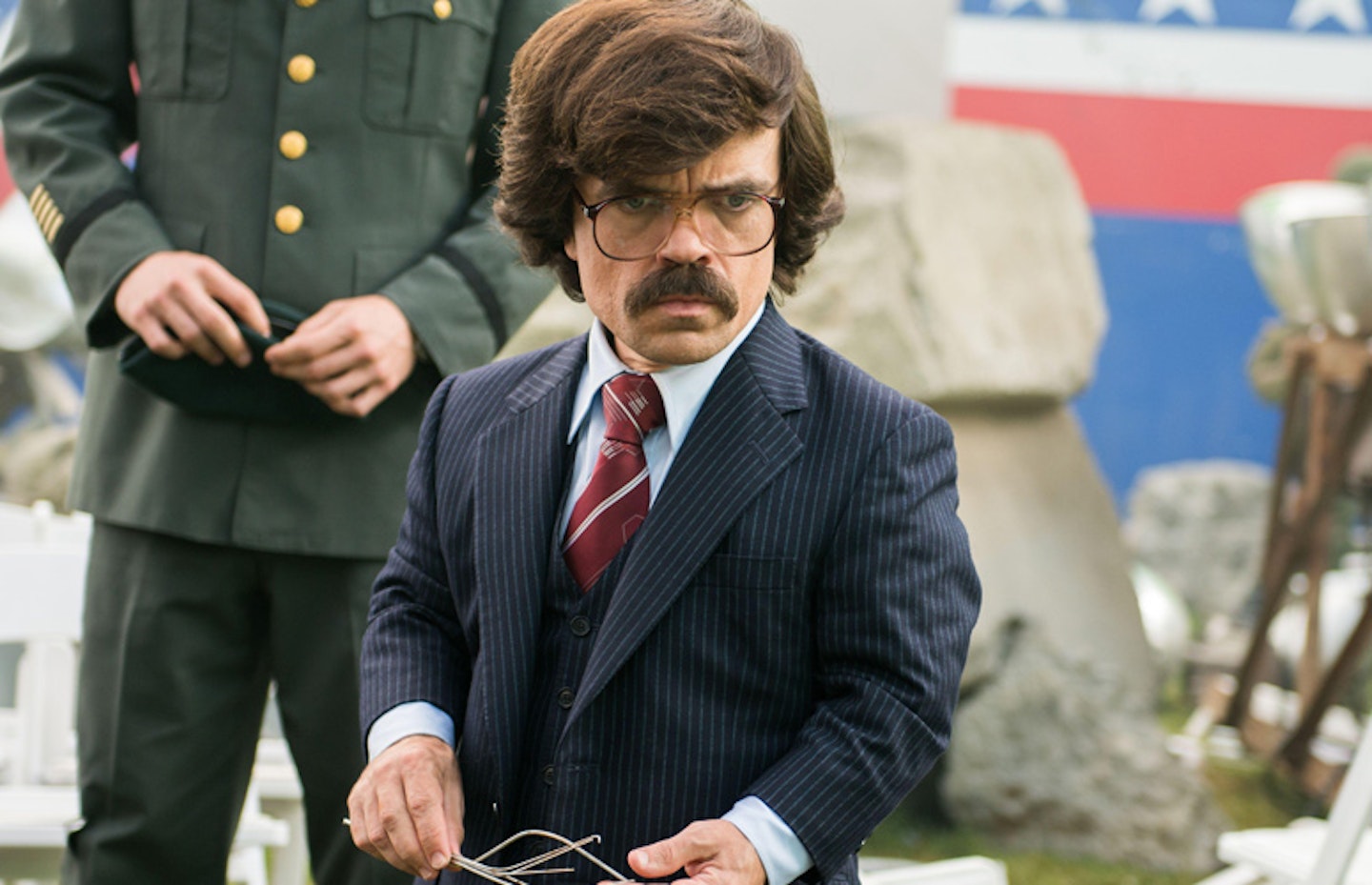
“It was critical that the audience didn’t want Trask to die. Here, thanks to Peter Dinklage, you hope Mystique won’t kill the villain. If she kills the villain, she sets the world on a dark path of mutant and human apocalypse – for the lack of a better word – so we wanted a villain that was complicated and sympathetic enough that you weren’t sure how you wanted the movie to end for him. A very small part of that is in the writing, but really most of it is the humanity that Peter brings to any role. Like in Game Of Thrones, he can do the most dastardly things, but everyone loves him more than any other character.”
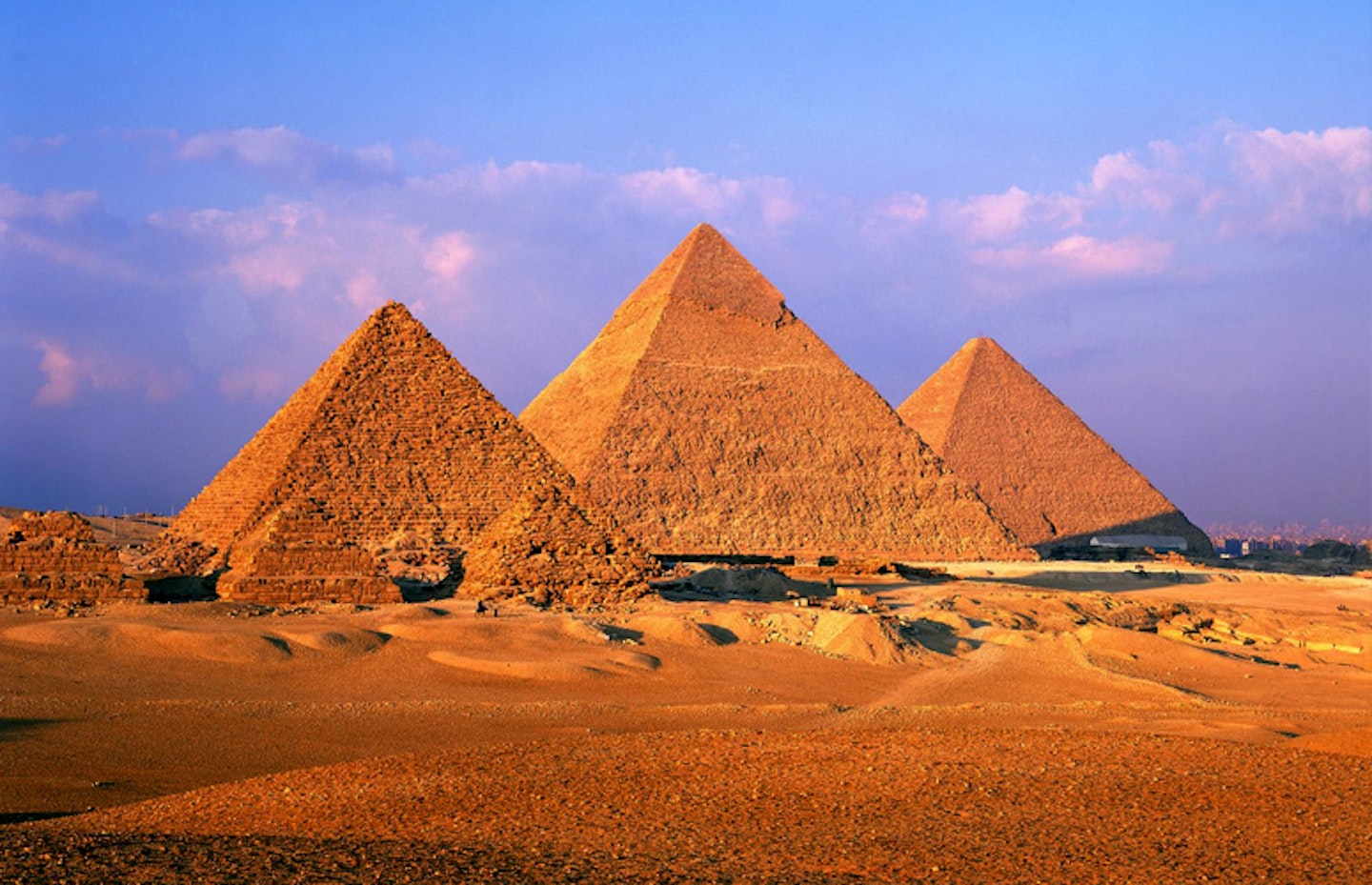
“That scene really is just a little tease into the backstory of what the movie will be. We’re not committed to that young actor playing him; it’s just supposed to let the hardcore fans know that Apocalypse is coming. You may have noticed that there are four horsemen in the background; that was important to Bryan. I guess we call him the younger Apocalypse. The older Apocalypse that will come in the next movie, and he will be a different actor and have a slightly different vibe.
“As a writer, I’d like to not do alternate realities [the way the Apocalypse story lines do in the comics]. What [fellow producer] Lauren Schuler Donner, Bryan Singer, all of us, want to do is make things different every time. Create a genre within the genre each time, which is what all my favourite superhero movies do.
“Days Of Future Past is a time-travel movie; Apocalypse will be a disaster movie. Those are viable genres without superpowers, so when you add superpowers and superheroes to that genre, you’ve got something a little different to what has come before. So in terms of alternate realities… there may be a little bit of that in the film, but we really are at the early stages of figuring it out.
“I just want to say as the writer that I don’t know if I could handle telling more than one linear story any time soon, especially with one of those linear stories involving eight different characters to be serviced! I look at some action movies now with a single protagonist, and I think that is the *easiest *job in the world. I know it’s a different challenge, as you have to go deeper and stretch a character further, but I do yearn for the day of one hero with one set of problems.”
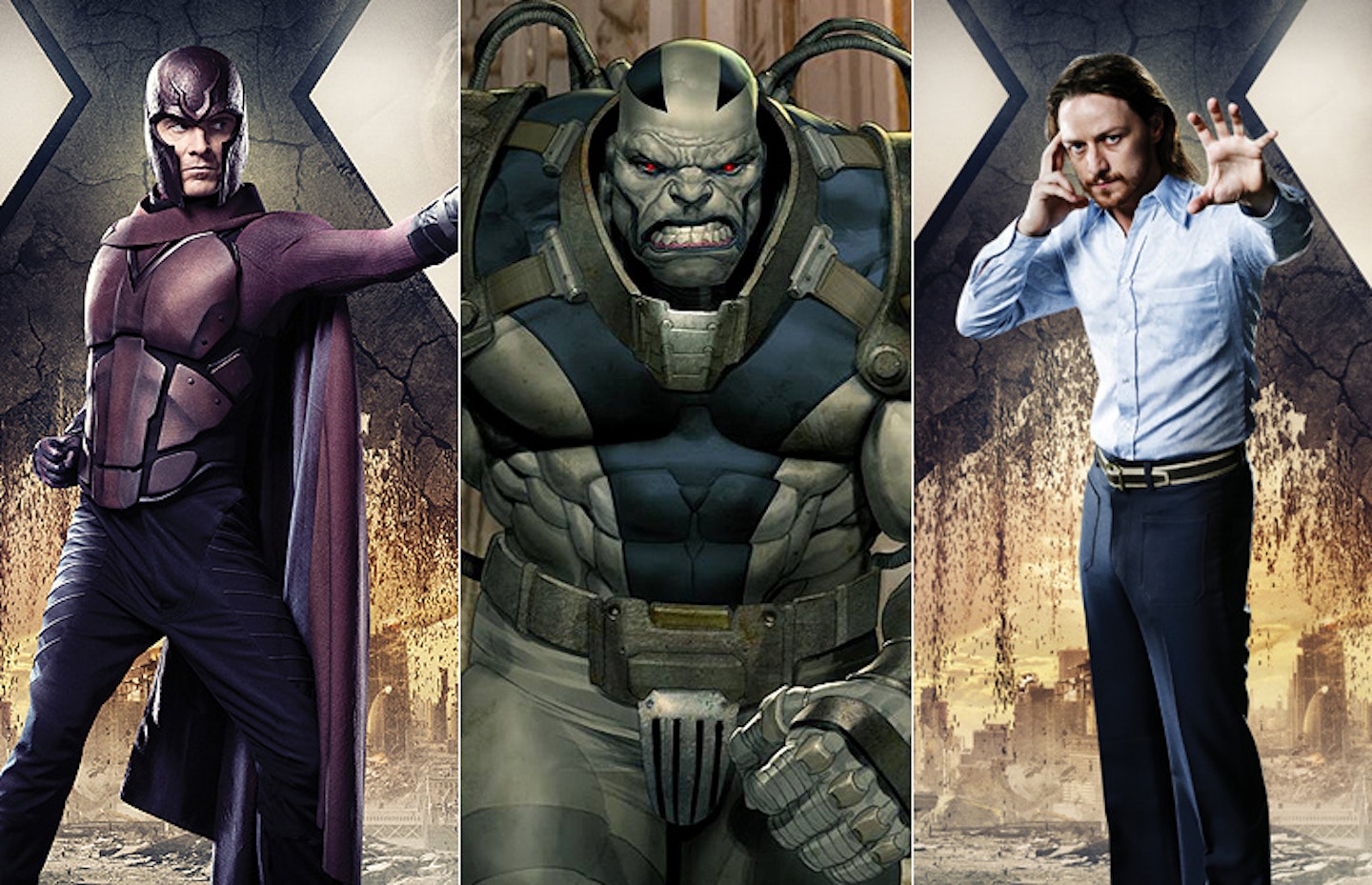
“From a standpoint of scope and scale, it’ll be the biggest X-Men we’ve ever had, whereas Days Of Future Past was the biggest because of the cast. But we will have some new X-Men in the film to give it its own unique flavour, and as long as it takes place a few years after Days Of Future Past, there will be the opportunity to tell the origin stories for different characters that we haven’t told yet. But for sure, from a visual and a powers perspective, Apocalypse will be the most powerful villain the X-Men has ever faced.
“If First Class was Eric’s story and Days Of Future Past is Charles’s story, then Apocalypse will be both of their stories. The first movie was about Eric becoming empowered. That’s the origin story of a man’s power. Days Of Future Past is about a guy who is a mess, masterminding the end of this massive movie. So they are both at their peak powers at the start of Apocalypse, so Apocalypse for me is culmination of that three-act love story.”
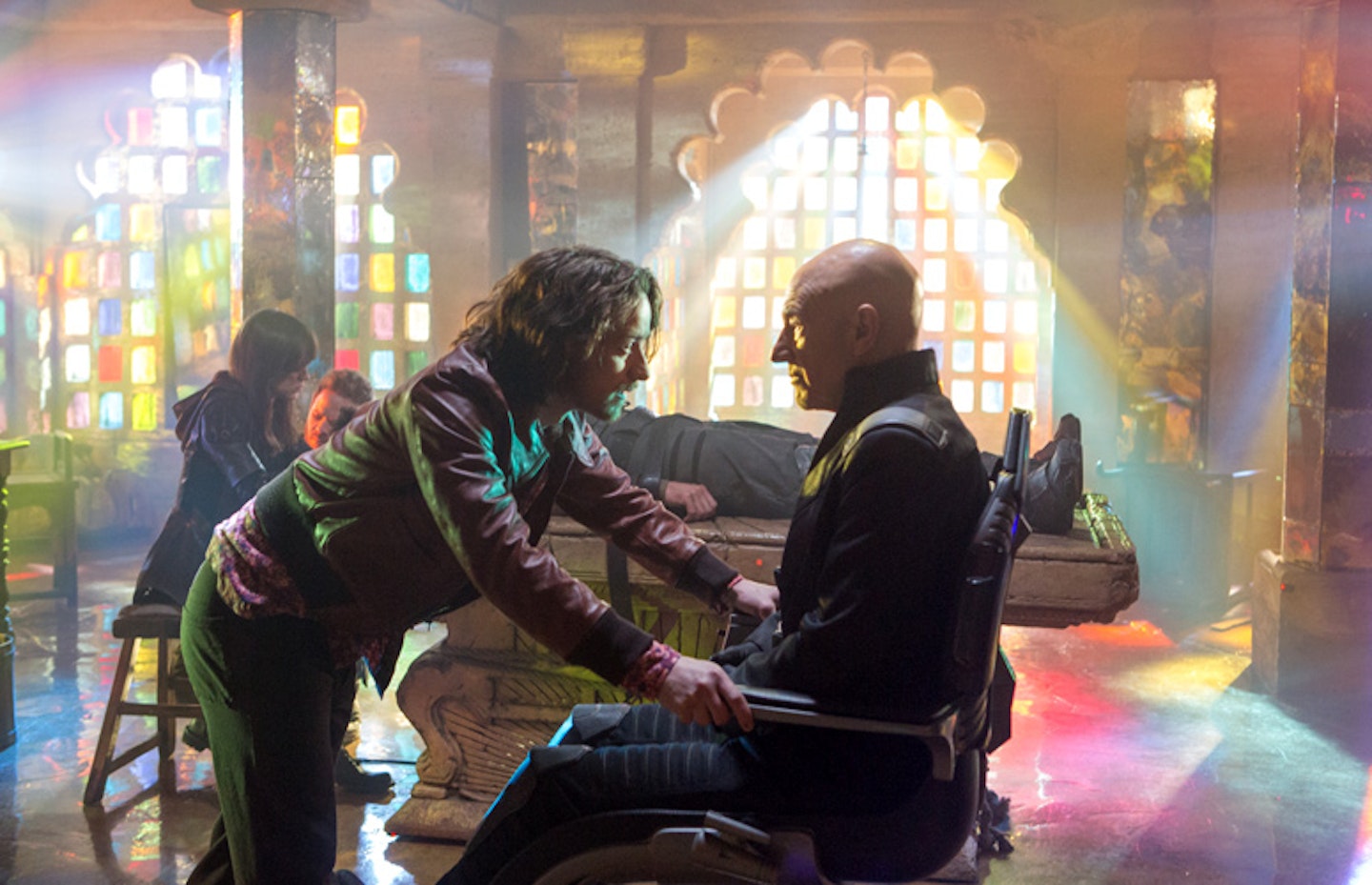
“In an early draft of Days Of Future Past, I had his hair coming out. But it felt like so many things were happening to him, so it felt like we were creating The Fly… some sort of body horror movie, so we pulled it out for good reason. But we’ve all talked about it, for sure, from First Class, actually: how do we eventually get the hair off James’ head? With his long hair, we ended up in this movie going in the opposite direction.”
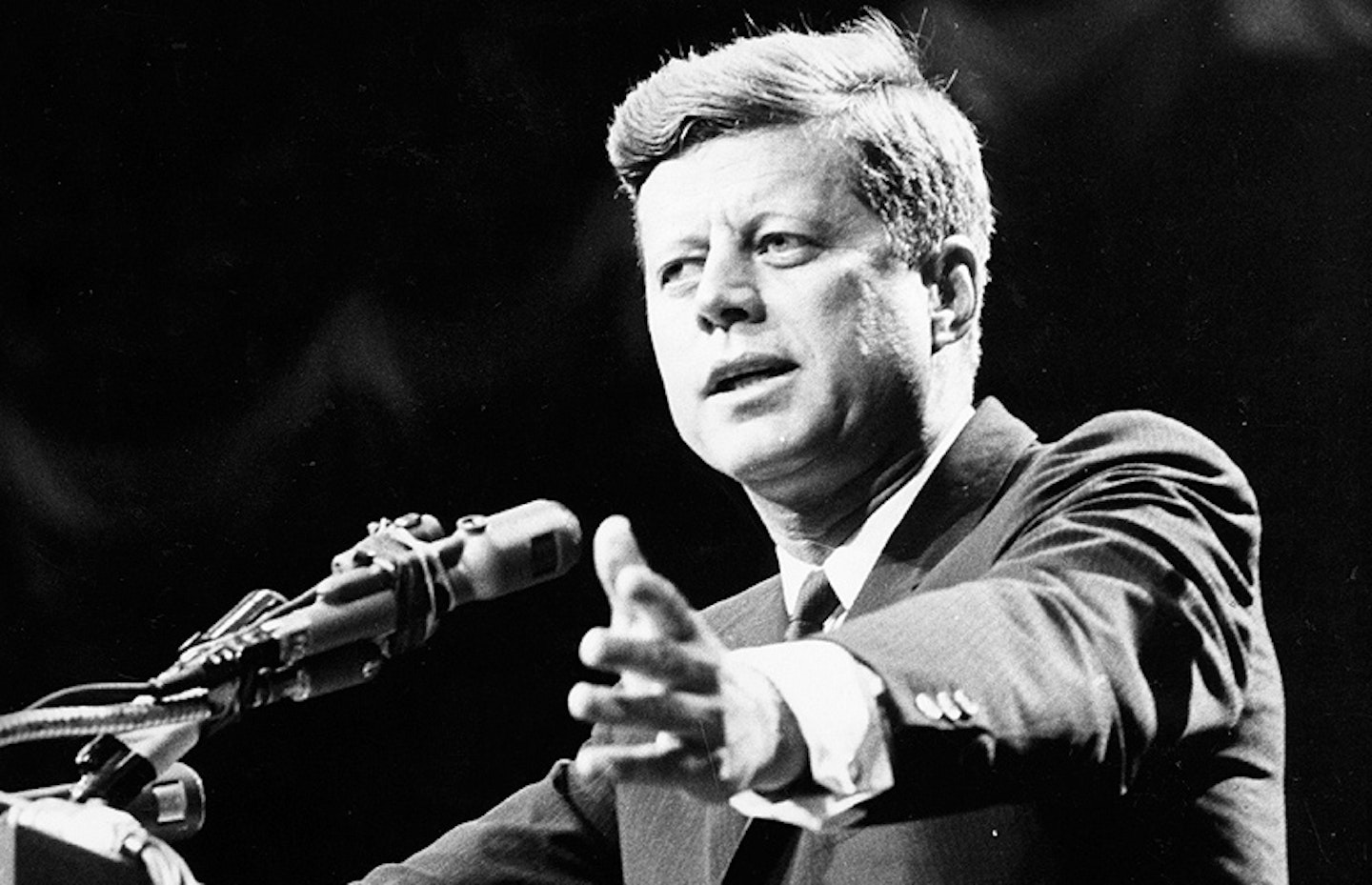
“The notion was that Trask was a little bit involved in the assassination of JFK. I’m just telling you back story, it’s not in the movie, but Trask identified that JFK was a mutant, and then the people that wanted JFK killed for all their political reasons, whoever it actually was who actually killed him, they were motivated by the fact that this guy was a mutant. So Eric got wind of that, and tried to stop them, but there were too many of them.
“We talked about what JFK’s power was for quite a bit, and my answer for you may be a bit obvious and not that smart, but it’s a telepathy, a mind-control, the ability to persuade people to do things. There were other theories from other people that were slightly more… tawdry.”
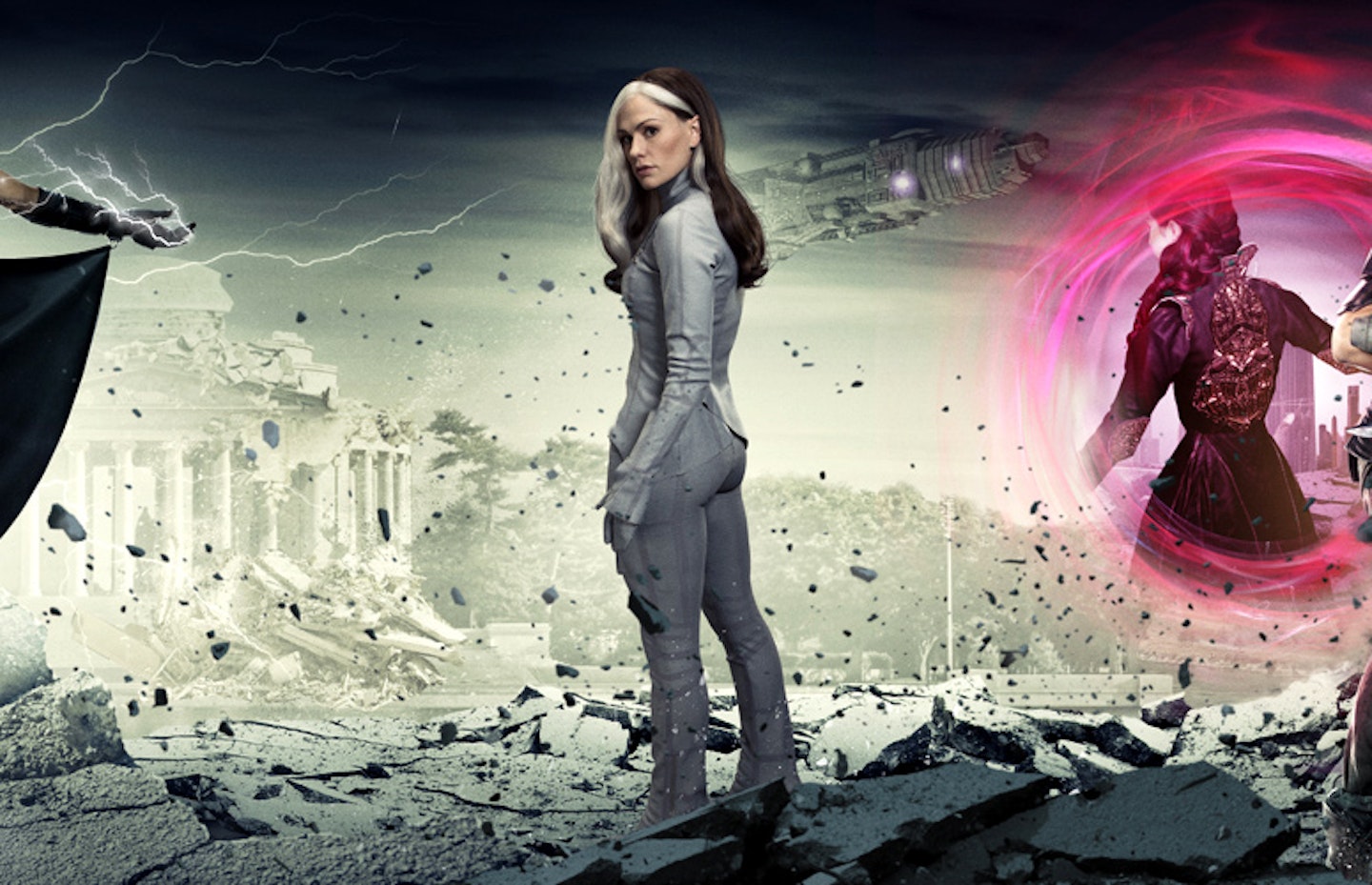
“The Rogue subplot was originally there because I wanted a mission for the older Charles and Eric to do, something like Unforgiven – two last gunslingers, Clint Eastwood and Morgan Freeman – that kind of a mission for them. I just loved the idea of that. Nothing in the story necessitated that, but just for a lark, I thought it would be a cool thing to see, because we may never see it again.
“When I initially wrote that, Kitty’s power was running out, and there was this super silly serum that was down in a farmhouse… it was terrible. I don’t even think it went to script, but it went to outline, and Matthew Vaughn said it was terrible, and he was right.
“Then I thought that if her power was winding down, they needed something stronger or someone who could take over her power. This came from a conversation with Matthew, which was about no-one having the same power as her but then realising there was someone who could take her power. I got chills. Rogue could be the McGuffin of that mission. They’d have to get Rogue out of some dark scary place, and that’s what happens. It’s a really nice sequence, and it’ll end up on Blu-ray some way down the line.
“But it does not service the main story. I thought it would increase the urgency and the stakes of the plot in the future, but it actually does the opposite, because it makes you feel like there is an answer out there. You think once Rogue gets here, we’ll have an unlimited amount of time. The ticking clock that we’d established with Kitty getting wounded and losing her powers… well, Rogue would show up and press stop on the clock. So for all of those narrative reasons, there was this ten-minute subplot that had to go.”
